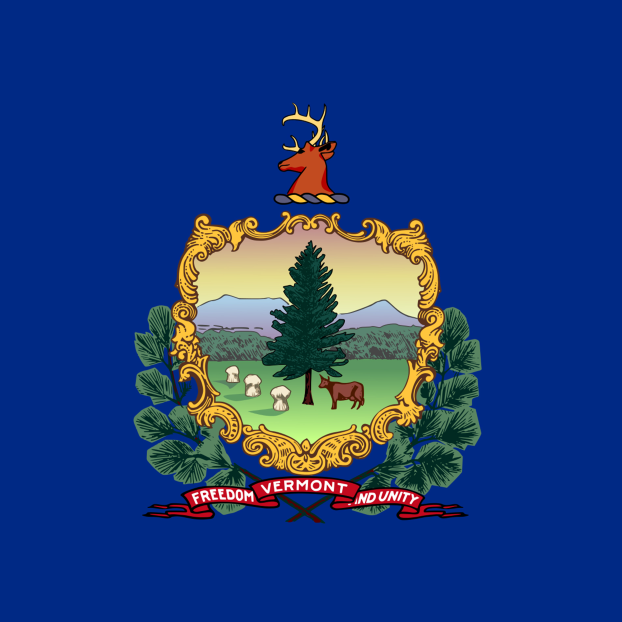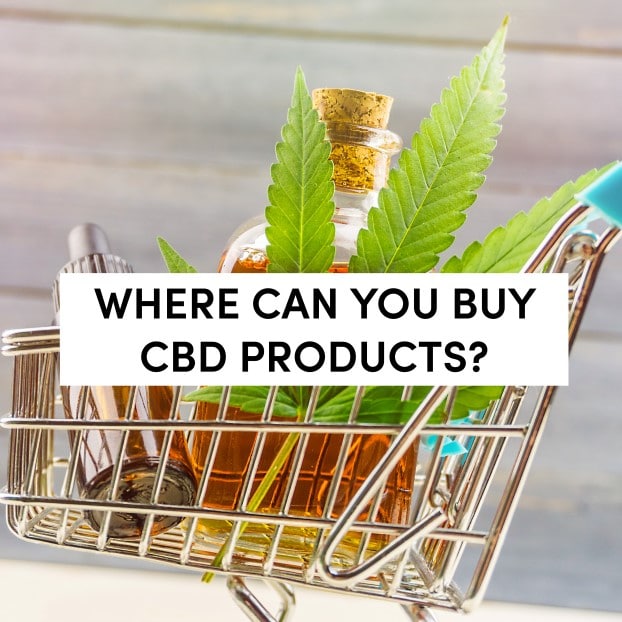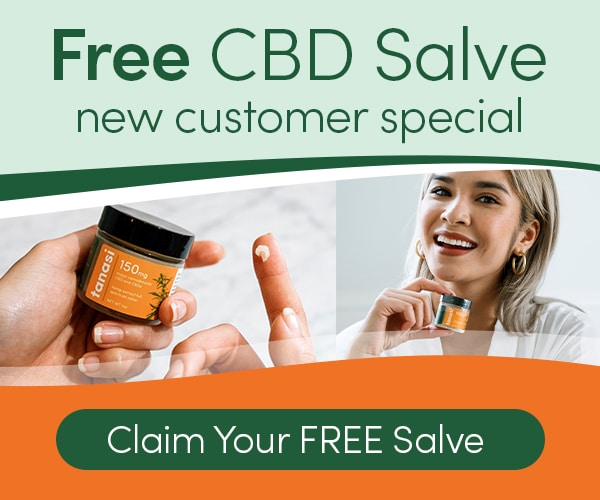Is CBD Legal in Vermont? – The Green Mountain State’s CBD Laws

Posted on January 14th, 2021
CBD or cannabidiol recently became very popular, but it is certainly not a new supplement in and of itself. You might have only heard about it relatively recently, though, because, since 2018, the compound’s popularity has only gotten bigger. So much so that, even at the time of this writing, new presentations of the product keep coming out one after the other. Besides CBD oil, there are CBD lattes, massage oils, chewable, and, of course, health supplements. If you were to list the entire variety of CBD products currently available, you might just end up exhausted.
The growing use of industrial hemp, from which CBD primarily derives, became legal in the US in 2018. However, each state also has the right to further define its own laws to govern the compound rather than strictly follow the federal standard. Thus, each state can ultimately decide the way they will handle the cultivation, commercialization, and possession of the compounds derived from the plant.
It is essential for you to understand the rules governing this compound within your region if you are planning on buying it. Since each state’s got different laws, don’t make the mistake of thinking just because you know one state’s laws, you know every state’s laws. One mistake, and you might land on the wrong side of the law. Having said that, are you looking to find out if is CBD legal in Vermont? Before we start talking about the Vermont CBD laws, let’s first talk all about the compound.
What Is CBD?
CBD is short for cannabidiol, a compound found inside the cannabis plant. Most CBD comes from the hemp variety of cannabis plants, another variety of cannabis is, by the way, the marijuana plant.
However, despite hemp being cannabis, it does not get you high when you consume it due to it having little THC content. THC, lest we forget, is the psychoactive ingredient in the cannabis plant that causes you to get ‘high’.
While marijuana does have a high level of THC content, hemp does not. Thus, no need to worry about hemp-derived CBD giving you any kind of impairment.
What Does CBD Do?
The compound has been and still is under research. So far, research, and the testimonials of millions of enthusiasts, hint that CBD has many effects on the body. Essentially, it apparently delivers a similar effect to that of marijuana consumption but without the signature psychoactive impairment. That means that could CBD potentially work for:
- Pain Management
- Anti-Inflammatory
- Anxiolytic and Antidepressant
- Sleep Aid
Among other things, CBD also seems to hold promise assuaging the symptoms of arthritis and side effects from chemotherapy.
Is CBD Legal in Vermont Today?
The laws surrounding the use of CBD are, frankly, tricky, and complicated. For starters, the product is legal in the United States of America at the federal level. Following the 2018 Farm Bill, the use and growing of the plant became something legalized. If you reside in Vermont, wondering ‘is CBD legal in Vermont?’ fortunately has a ‘Yes’ for an answer. The state does not have complex, overlapping rules some of its neighbors still hold on to.
Vermont accepted CBD with open arms a quickly made it legal. The Vermont Agency of Agriculture, Food, and Markets oversees the handling of the products.
Each person interested in the business must first register with them to get the relevant certification. Initially, there were few interested parties. However, since the passing of the Farm Bill, the state experienced a surge of applicants. By the end of 2019, there were 460 growers in Vermont. The number doubled up since. Currently, it’s approximately 970.
Both cannabis and hemp are legal for Vermont residents. Cannabis enthusiasts are also free to use hemp-derived CBD.
Medical Marijuana in Vermont
However, if you wish to use medical marijuana, you must register to get a medical marijuana card. As per the 2018 bill, the only people allowed to use it should be over 21 years of age. Nevertheless, there is also a provision for minors.
They must be at least 18 years old and have to be in the company of their guardian to get the card. The Vermont rules for medical marijuana indeed are strict. Currently, the lawmakers within the state are tirelessly working on a new set of regulations.
The rules aim to prevent marijuana from being a controlled substance. Vermont wants to take steps to protect its processors, cultivators, and also users. Before the products get to the public, they must go through the FDA’s different processes.
These steps are unique and have different for each state; the following are Vermont’s own.
Growing and Selling Requirements.
Entrepreneurs interested in cultivating hemp must first acquire a license from the state. There are three requirements that you must meet regarding the kind of plants that you can grow. Cannabis has numerous species, each of them with a unique composition. Below are the strict guidelines that you have to adhere to if you want to grow them.
Each grower must register their farm. During supplying, the buyers will have a clear picture of the origin of each product. The FDA proposes this for safety and accountability purposes.
Testing is mandatory. All products must go through a compulsory testing process. It should take place in specifically licensed laboratories located within the state. The testing is vital as it certifies if the products are safe for users by meeting all the requirements.
All products must contain a maximum of 0.3% total THC content. The authorities check this aspect through testing, and failure to adhere can result in businesses’ closure.
The FDA has so far only certified CBD products, including hemp topicals, concentrates like oils and tinctures, hemp seeds for food products, and industrial hemp to construct fiber items.
Labeling Requirements.
Section 11 of the Vermont hemp state laws require the labeling of all hemp and CBD products. The requirement is to ensure consumers can easily trace back the products to the original source if they ever need to.
Also, it makes it easy for users to verify if its composition falls within the legal limits stated by regulators. Most producers prefer to use terms like distillate, the whole plant, isolate, broad-spectrum or full spectrum.
The definition of these terms has to fall within the Hemp Program rules. It gives buyers an easy time when making choices. The list below contains all the data which manufacturers must provide before going public.
- The name of the product.
- An exact mailing address of the manufacturer.
- The quantity of the products within any packaging, for instance
- The weight
- Measure
- List the different kinds of products present if bundled together.
- Also, there should be a guarantee showing the portion in milligrams, grams, or milliliters. This way, users will know the amount in each serving when using the product.
- If the products contain some THC, it indicates so.
- The batch number of the product.
Lastly, all products must have the ‘Vermont Hemp’ stamp on the label. It shows that all activities surrounding the products are as per the Vermont hemp state laws.
Nevertheless, if the FDA approves the products as a dietary supplement, the federal labeling requirements will supersede state requirements.
Possession Limits.
Vermont Hemp State Rules made it easier for the residents to take hold of some CBD. Unlike in other states, there is no limit to the number of products that you can possess at any given time. Nevertheless, users would do themselves a favor if they remain cautious of just how much they take at one time.
Where Can You Buy CBD Products in Vermont?
In Vermont, users have many alternatives on how and where they can buy these items. You can either purchase them from retail stores or online. The increasing array of products makes them available in almost any shop you could imagine. You can get them in storefronts, kiosks, and even at gas stations.
The second option is going online. This approach is the most favorable as you get access to a wide range of products. Most sellers will gladly deliver those products to your doorstep. Also, online sellers, having much less overhead than brick and mortar stores, tend to have lower prices.
These products should also contain less than 0.3% THC. The regulation is mandatory as per the 2018 Farm Bill. Either way, users have to be extra careful when making purchases. Do not fall for sketchy online sellers. Always do a background check on the online supplier you are considering by looking at online reviews of past users.
Is CBD legal in Vermont? – The Takeaway
One advantage of being a Vermont resident is getting access to high-quality CBD easily. The cannabidiol business is, however, booming. Thus, it invites sketchy sellers looking to exploit the incautious. If you reside in Vermont, you better the above information to heart; it will help you navigate the CBD market the best way. Do a background check on each seller to determine if their products fall within the legal limits. If you cannot find the test results of a seller posted on their website or product label. Better look elsewhere.





